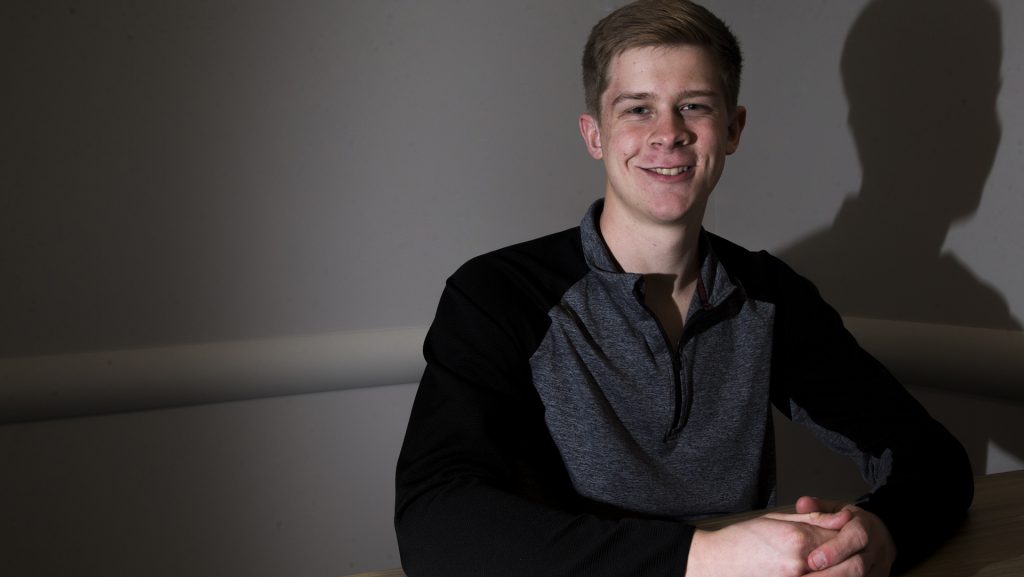Born completely deaf, University of Iowa freshman Hunter Orthmann now marches with the Hawkeye Marching Band, and hears every note that comes out of his trumpet.
Orthmann is the recent recipient of the prestigious Graeme Clark Scholarship from Cochlear America.
When Orthmann first came in to the world, he was born very sick.
He spent more than two weeks in the neonatal intensive-care unit. The doctors didn’t know what was wrong with him and couldn’t treat him or make any promises regarding how long he would live.
“It was the worst 15 days of our lives,” said Dale Orthmann, Hunter’s father. “Early on, we didn’t know whether he was going to make it or not.”
Hunter Orthmann, however, had other plans. He survived his stay in the hospital and was able to go home with his parents. But he had another obstacle to overcome.
He was diagnosed by the doctors as completely deaf with no way to fix it. Doctors told the Orthmanns to learn sign language and put Hunter in a school for the Deaf.
When Hunter was a little over 1 year old, doctors began putting cochlear implants in children.
The implant is an electronic device that mimics the function of a working ear. The user wears a sound processor that sits just above the ear, which connects to an implant that is placed just under the temple and sends a signal directly to the hearing nerve and then the brain.
Doctors told the Orthmanns that, due to Hunter’s rare form of deafness, he was not a candidate for a cochlear implant.
However, the implants were later tested on adults with the same form of deafness as Hunter. Of the 13 adults tested, 12 were successful. After learning of this, the Orthmanns decided to get the implant for Hunter.
The implant was successful; when the Orthmanns left Mayo Clinic, where Hunter had the operation, they saw almost immediate results in the operation.
“When we left Mayo after hooking him up, Hunter was in a car-seat in the back. We were just pulling out of Rochester, and a very loud commercial came on,” Chantal Orthmann, Hunter’s mother, said. “It startled him out of his sleep. I was like ‘He heard that. In his sleep, he heard that.’ ”
Now, 18 years later, Hunter is a student at the UI.
He has always intended to become a physical therapist in order to help not exclusively deaf people like himself but anybody in need who has had similar struggles.
Hunter’s ambitions are supported by Cochlear America, which provides scholarship money to him for the duration of his time at the UI.
Hunter also has talents outside of his academics, such as his musical career. He first learned how to play piano by his mother, starting when he was in about first grade.
“To be honest, music is what I cried about the most,” Chantal said. “The fact that he would never enjoy music like I did. That he would never share my love of music with me.”
Fortunately for them both, Hunter has become very musically talented over the years, as his seen by his participation in the marching band shows.
Hunter, when discussing his life with his implants, is very grateful for them, saying they were life changing.



